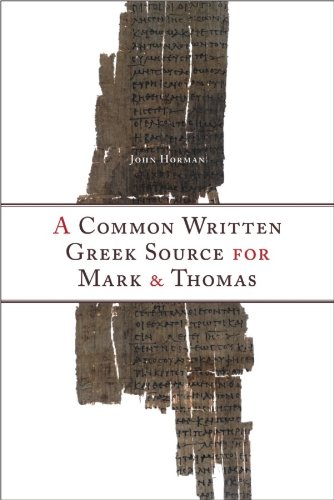

Most ebook files are in PDF format, so you can easily read them using various software such as Foxit Reader or directly on the Google Chrome browser.
Some ebook files are released by publishers in other formats such as .awz, .mobi, .epub, .fb2, etc. You may need to install specific software to read these formats on mobile/PC, such as Calibre.
Please read the tutorial at this link: https://ebookbell.com/faq
We offer FREE conversion to the popular formats you request; however, this may take some time. Therefore, right after payment, please email us, and we will try to provide the service as quickly as possible.
For some exceptional file formats or broken links (if any), please refrain from opening any disputes. Instead, email us first, and we will try to assist within a maximum of 6 hours.
EbookBell Team

4.4
42 reviewsThis book uncovers an early collection of sayings, called N, that are ascribed to Jesus and are similar to those found in the Gospel of Thomas and in Q, a document believed to be a common source, with Mark, for Matthew and Luke. In the process, the book sheds light on the literary methods of Mark and Thomas. A literary comparison of the texts of the sayings of Jesus that appear in both Mark and Thomas shows that each adapted an earlier collection for his own purpose. Neither Mark nor Thomas consistently gives the original or earliest form of the shared sayings; hence, Horman states, each used and adapted an earlier source. Close verbal parallels between the versions in Mark and Thomas show that the source was written in Greek. Horman’s conclusion is that this common source is N.
This proposal is new, and has implications for life of Jesus research. Previous research on sayings attributed to Jesus has treated Thomas in one of two ways: either as an independent stream of Jesus sayings written without knowledge of the New Testament Gospels and or as a later piece of pseudo-Scripture that uses the New Testament as source. This book rejects both views.